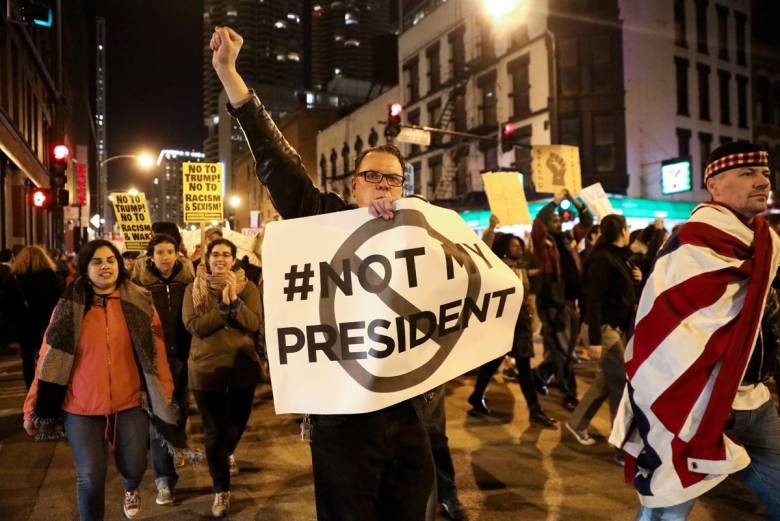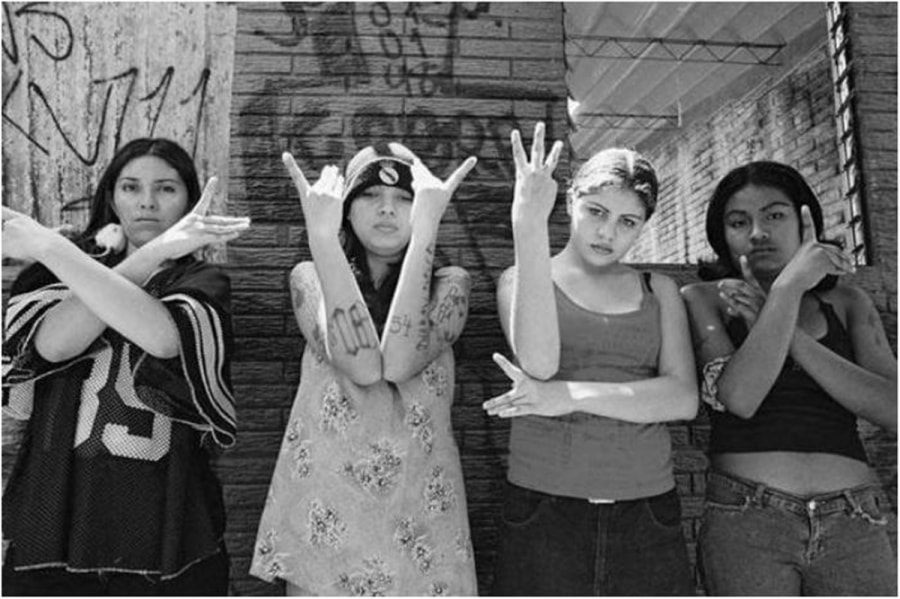Does being a light-skinned Latina mean I am not living the POC experience?
What defines a person of color? Is it race? Ethnicity? Color? The answer can be longer than one word. More complex than a simple label.…
What defines a person of color? Is it race? Ethnicity? Color? The answer can be longer than one word. More complex than a simple label. Bigger than a box.
It has been ingrained in us to label and put people in a box based on what they look like. But we come in the form of so many nationalities, colors and shades that the line separating “white” and “person of color” can be really blurry.

A person of color, commonly referred to as POC, is defined as “A person who is not white or of European parentage”. My skin is white, but I am a person of color because I am Latina. My great grandparents from my mother’s side are Spaniards, and my last name is Italian according to several ancestry websites. So even if my race is white, I have European ancestors, and the way I look is not the image that comes to mind when thinking of people of color, I am still a member of the POC community.
I applied for a fellowship which requires that applicants be “…a student of color (African-American, Asian-American, Latino, or Native American).” When asked what race I am in application forms, I check “white.” But when it comes to ethnicity, I check “Hispanic/Latino” instead of “white.”

Does being a light-skinned Latina mean I am not living the POC experience? Do I have privilege over my darker counterparts for being somehow “white-passing?”
At first glance, I might have some sort advantage when others look at me. I can walk in the streets wearing a hoodie with less fear than an African-American or brown Latino would. I see more people in beauty magazines that resemble my skin tone than Afro-Latinas do. However, the moment I start talking, people can notice my Spanish accent and tell that I am Latina. A minority. A person of color.
I came to the U.S. from Cuba as a teenager and had to become accustomed to a different culture, learn a new language and had people make fun of me for being a new immigrant and pronouncing words incorrectly. And as far as name profiling on job applications and other instances, my last name ends in a vowel. In that sense, I still live the POC experience of a Latino.

Growing up in Cuba, I saw pale blonde and redhead Cubans, dark-skinned Afro-Cubans and everything in between. The same applies to other Latin American countries. History tells us that indigenous people, European immigrants and African slaves intermingled to create all sorts of mixes, including mestizos and mulattos.
We all have different experiences. The POC umbrella is so big some people are even against using the term because it can be vague. Perhaps being more specific can help, and using more than one word or term to describe a person can be more accurate.

We also have completely unique identities that we can describe with different terms. But at the end of the day, if you choose to call yourself or others a person of color or a more specific term, don’t try to guess a person’s race, ethnic background or any other term based on what you think that person looks like or has experienced. Don’t try to question someone’s identity because of a preconceived notion about the person’s skin color, name, accent or whatever other information that can be stereotyped. Stay educated and open to meet people you never thought existed. There are billions of us in this world.
By: Adriana Falero
Disclaimer: The views, opinions and positions expressed by the authors and those providing comments, opinions on this website are theirs alone, and do not necessarily reflect the views, opinions or positions of M-Lifestyle and their affiliates. M-Lifestyle does not claim ownership of any images used, unless otherwise specified.
![]()







Comments
youre not a poc. sorry. you are white.
If you’re Asian latina or Afro latina who has light skin then you are a poc. but if you’re European latina/Hispanic, then you’re not a poc.
Hi, I ready appreciated seeing this article, not enough light skin latinx people are writing about this, so I applaud you! Myself, as a dark skin Latina, I always felt that these conversations of light skin privilege takes place. From my own experiences and what you share, I think acknowledging that light skin does have its privileges, like you said … it’s an umbrella with so many experiences of poc. I would appreciate if light skin latinx ppl were open to these conversations. Thanks for you article, enjoyed reading it !
Thank you for your feedback. We will continue to bring relevant topics such as this to you.
As a light skinned Puerto Rican who grew up all over the US (with the exception of the East Coast of which there is a significant PR population) this article really speaks to me and my experience especially in terms of the types of things that would be said to me by both white people and other poc. Also pretty telling that there are people in the comments going out of their way (after you wrote a long thoughtful piece on the subject) to say “lol ur not poc” so dismissively and without much of an argument supporting their stance. Such is life for us light skinned Hispanics. We’ll never truly be seen as “white” in the way many people view the term but we’re not “real Hispanic, poc, etc.” because of our skin color despite the fact that we live a marginalized experience even within Hispanic communities.
Thank you for writing this article.
Through out history people of European ancestry in Latin America called themselves white, not Latino/a. The whole concept has been quite confusing. Most Latinos are a mix and therefore many consider themselves POC whether they have European ancestry or not because it is really hard to know whether you are or not. I mean obviously you can guess by appearance, but you could be a fully European with dark traits which makes you look POC. So, technically you’re not, but in today’s society you would be accepted by many POC’s as POC.
Thank you for writing this. I am also a light-skinned mixed Guatemalan in California. Usually people think I am a brunette white until they hear me talk, and I have had non-Latino skeptical people questioning me. My father is even paler with green eyes, but his DNA test showed 30% Native American plus some African ancestry. Even before the dna test, I always grew up thinking I was mixed, so I always have considered myself a POC.